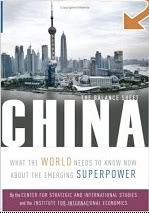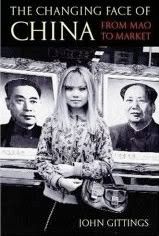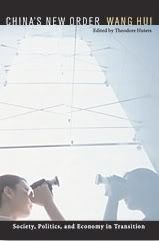CHINA: Sweeping privatisations spark criticism
16 March 2005
Eva Cheng
Widespread public disgust at the sweeping privatisation process pushed by the Chinese government since 1997 has begun to surface in the Chinese mass media.
Last August, Taiwan-born, US-educated and Hong Kong-based academic Larry Lang Hsien-ping (also known as Lang Xianping), accused the managers of some of China's state enterprises with short-changing the state while these firms were being privatised. The China-listed technology group TCL, the Hong Kong-listed Greencool Technology, and the Haier group were targeted, with Lang basing his case on technical analysis of the publicly available corporate data.
Greencool executive director Gu Chujun, at the centre of some of the allegations, soon launched a legal action against Lang. However, in doing so, Gu helped end the media censorship of the politically sensitive issue of privatisation.
A key focus of the emerging debate has been the widespread phenomenon of state enterprises' managers amassing fortunes while privatising the firms under their administration.
Privatisation escalates
In 1997, Beijing formalised a policy to massively extend the 1990s “experimental” privatisation of state firms. The big state firms were said to be off limits, but what constituted “big” was never spelled out.
The State-owned Assets Supervision and Administration Commission was mandated by the State Council — the central government's highest executive body — to control 178 “big state firms”. The official Chinese media often says there are 474 “key state-owned firms” and 186 state firms owned solely by the central government.
The bulk of China's state firms, which since the early 1950s had formed the backbone of the country's post-capitalist economy, received Beijing's official blessing to be rapidly sold off.
According to a December 1, 2004, People's Daily report, China's stock of state firms has dwindled from 238,000 in 1998 to 150,000, accounting for less than 40% of the country's economic output. Chinese finance ministry official Zhou Fang told the July 1, 2003, Vietnam Investment Review weekly that the public sector accounted for less than 25% of China's GDP.
Beijing's 1997 claim that the state will hold onto the “big firms” has become increasingly meaningless. During the “corporatisation” of state firms in the 1990s, only one-third of their shares were available for sale to individuals, with the remaining two-thirds — divided equally between “state shares” and “legal entity shares” — being excluded from free trading.
According to Cui Zhiyuan, a left-wing professor at Qinghua University, in a September 26 talk in Beijing, the “non-tradable” state shares had been sold to state firm managers in many cases, in an arrangement dubbed “management buy-out”.
While small slices of the ownership of some privatising state firms were sold or distributed to their workers, a bigger proportion was sold on the local and overseas stock exchanges. The biggest proportion was sold to the existing managers.
While these firms have had mixed fortunes after they were privatised, their existing and retired workers invariably became much worse off, with mass sackings and failure to have their entitlements honoured being commonplace. Conversely, most of the managers and their hangers-on became extremely rich overnight.
Give-away
Apologists for the Beijing regime's restoration of capitalism, who have been highly active since the early 1990s in seeking to shape public opinion, put such a sudden surge in the wealth of state firm managers down to “efficient market-oriented management skills”. Left-leaning intellectuals disagree, saying many such state firm “sales” were just give-aways, at the expense of the state coffers and the firms’ present and retired workers.
In China, the intellectual defenders of capitalist restoration are often called “neoliberals” or “mainstream” economists, while their left-wing opponents are referred to as “new left” or “non-mainstream” economists.
According to Cui, the Cai Jing magazine, a “new left” publication, has carried three articles since 2001 questioning the dubious practices of Greencool in greater depth than Lang, but these have received much less public attention.
One of the allegations against Gu is that he directed the Hong Kong-based Greencool Technology to make purchases at highly inflated prices from the China-based Tianjin Greencool, which Gu ultimately controls. Outsiders or non-expert observers don't easily notice the inflated prices. But this method, as well as sales at discounted prices, Cui explained, are common ways to embezzle state assets.
Such a disguised flow of resources, Cui pointed out in his September 26 talk, is further obscured by the controlling shareholder's use of layers of subsidiaries.
Fraud and corruption
In a November 8, 2004, analysis, renowned left-wing economist Zuo Dapei, researcher and lecturer at the Chinese Academy of Social Sciences, argued that those who have become super-rich overnight after acquiring a state firm often benefited from not having to pay for the firm's real worth. Left out in the price calculation, as a norm, are the firm's liabilities to state-owned banks and its “implicit” liabilities in the form of workers' entitlements. According to Zuo, these account on average for 70-80% and 20% respectively of a firm's liabilities. Such liabilities, he argued, are many times the firm's assets.
Among the workers' entitlements that are not honoured — apart from health care and other basic welfare provisions traditionally provided by state firms to their employees — are the workers' accumulated unpaid wages (a result of non-payment of wages by “firms in difficulty”).
The non-payment of debt to state banks and obligations to workers, Zuo stressed, constitute a violation of their rights as a firm's creditors, and a looting of the state coffers and the firm's workers.
Zuo listed seven other common ways through which a minority can do well at the expense of the state and the workers from a Chinese state firm undergoing privatisation:
* Lack of competitive bidding. The sell-off of firms is decided at the discretion of individual officials without an established or transparent procedure, providing no incentive for them to seek the maximum price but creating every incentive for them to sell the firm cheaply in exchange for bribes.
* The sale to the firm's pre-privatisation managers, who know the firm's operations better than any other parties, encourages its managers to manipulate the firm's fiunancial reports so that it appears to be loss-making and thus depress the prospective sales price.
* Under the pretext that only the state's initial investment is a “state asset”, while the accumulated earnings since then are “collectively owned”, some firms being privatised distribute a small fraction of the latter to their workers, to cover up the issuing of the bulk of the accumulated earnings to their managers.
* “Discounts”, under various pretexts, are given to the state firm's original managers if they seek to buy the firm. Cash payment, for example, generally earns them a 30% discount. Zuo cited a study by finance ministry researcher Zhou Fangsheng who pointed out that a state firm with 300 million yuan (US$36 million) in total assets could end up valued as having net assets of only 20 million if its nominal and implicit liabilities (to banks and workers respectively) were “forgiven”. This would mean it could be sold to its managers, after “discount”, for as little as 10 million yuan!
* Through the common practice of government bodies lending to the managers to facilitate their purchase of the state firm. While appearing to be a “fair” loan, such an arrangement enables the manager-purchaser to pass any losses onto the lender (the government) if the newly-privatised business turns sour.
* Firms in practice being given away to their managers outright, most often when they were ordered to be spun off from their originally controlling government department. Many departments, including the army, were ordered to do so in the 1980s and 1990s. Many of the firms involved have been highly profitable and privileged due to their historical links to key government bodies.
* Outright cooking of the books, and defrauding of the state firms through corrupt practices.
Zuo also pointed out that it is very common for the new owners to grow rich on the land holdings of the privatised state firm. It is not uncommon, he said, that a state firm's land holdings are the prime attraction for prospective purchasers.
Zuo said that Beijing's breakneck privatisation program had depressed sales prices for state assets. A common saying among China's entrepreneurs, he said, is: “If you pay two yuan for a state firm whose assets are worth 10 yuan, you're already paying too much.”
While most of the buyers of state firms are part of the existing bureaucratised power structure organised through the Chinese Communist Party, opposition to Beijing's restoration of capitalism has also come from within the CCP. A group of veteran CCP cadres, members, military personnel and intellectuals wrote an open letter to CCP general secretary Hu Jintao in October calling him to reverse the privatisation course and rejuvenate China's “socialist foundation”. A translation of the letter to Hu will be published in next issue of Links magazine, due out later this month.***
Link
Read more!



